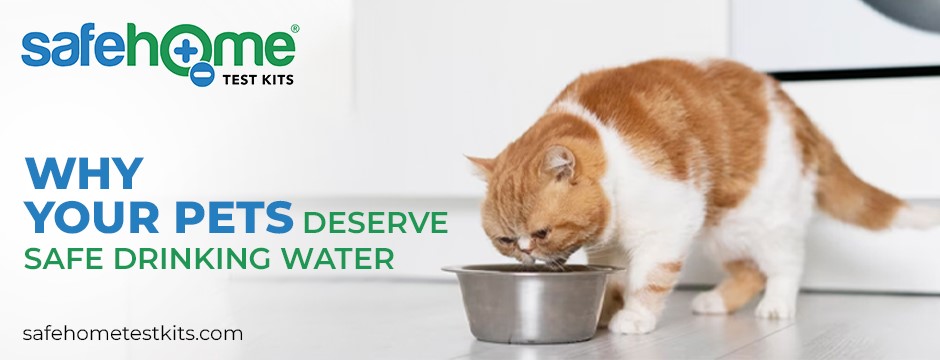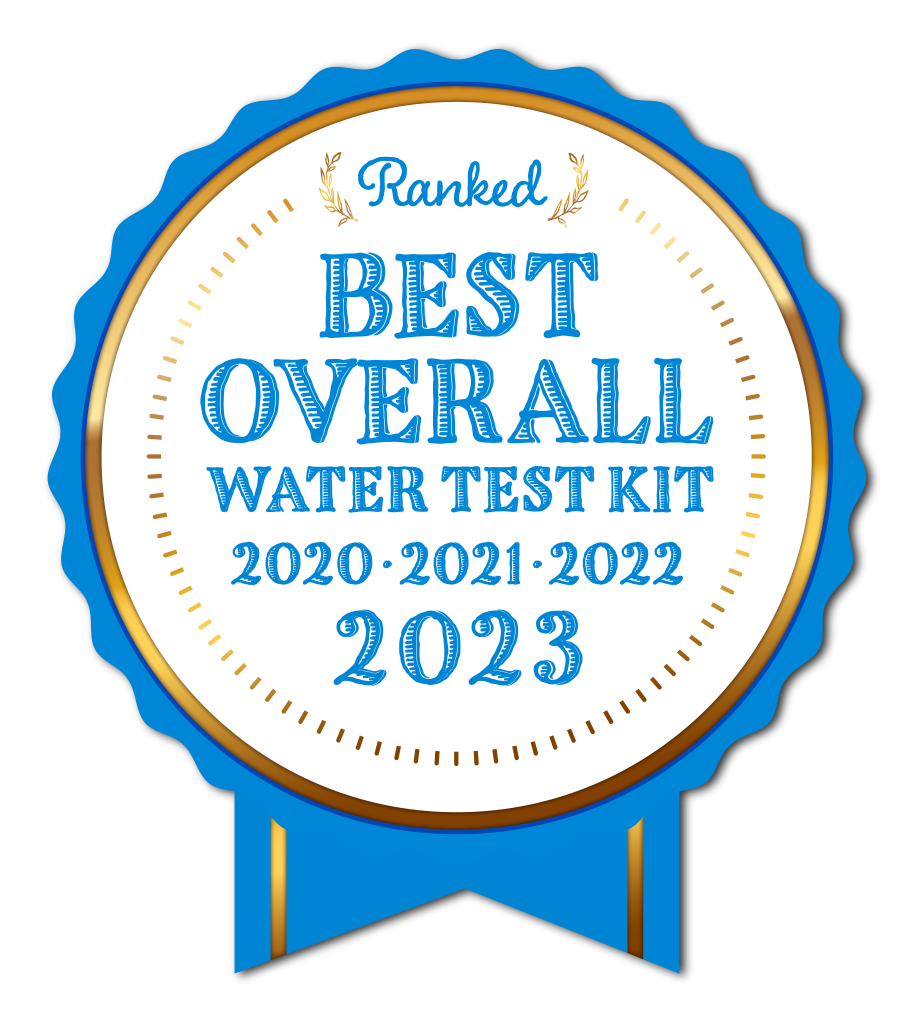Why Your Pets Deserve Safe Drinking Water

As pet owners, we’re committed to providing our furry companions with the best possible care, from nutritious meals to cozy beds. Yet, one aspect of pet care that is sometimes overlooked is the quality of their drinking water. Like humans, pets depend on clean and safe drinking water for their health and well-being. In this comprehensive guide, we’ll explore why your pets deserve safe drinking water, the potential risks of neglecting this crucial aspect of their care, and how you can ensure your beloved animals have access to the best water possible using pet drinking water test kits.
The Significance of Safe Drinking Water for Pets
1. Hydration and Vital Functions
Water is a fundamental requirement for all living beings, and pets are no exception. It is pivotal in various physiological processes, including digestion, circulation, temperature regulation, and waste removal. Adequate hydration is essential for the proper functioning of your pet’s body.
2. Preventing Dehydration
Dehydration is a real threat to pets, especially during hot weather or when they are active. Lack of access to clean water can lead to dehydration, which may cause symptoms such as dry mouth, sunken eyes, lethargy, and, in severe cases, organ damage or failure.
3. Supporting Organ Health
Proper hydration supports the health of vital organs such as the kidneys. Insufficient water intake can increase the risk of kidney stones, urinary tract infections, and other urinary issues in pets.
4. Promoting Healthy Skin and Coat
Hydration also has a direct impact on your pet’s skin and coat. Well-hydrated pets are likelier to have healthy, lustrous fur and supple skin.
5. Aiding Digestion
Water is essential for the digestion of food. Insufficient hydration can lead to digestive problems, constipation, and discomfort for your pet.
Risks of Neglecting Water Quality
1. Contaminants
Like humans, pets can be exposed to contaminants in their drinking water. These contaminants may include bacteria, viruses, chemicals, and heavy metals. Ingesting such substances can lead to gastrointestinal issues, illness, or long-term health problems.
2. Stagnant Water
Stagnant water in pet bowls can become a breeding ground for bacteria and algae. Pets that drink from stagnant water sources may be at risk of ingesting harmful microorganisms.
3. Chemical Additives
Some municipal water supplies treat water with chemicals like chlorine or fluoride. While these additives are safe for humans in regulated amounts, their impact on pets, especially in higher concentrations, can be different. Chlorine, for example, can adversely affect your pet’s gastrointestinal health.
4. Hard Water
Water with high mineral content, often called “hard water,” can lead to mineral deposits in your pet’s water bowl and potential health concerns if consumed regularly.

Ensuring Safe Drinking Water for Your Pets
Ensuring your pets have access to safe drinking water is a responsibility of pet ownership. Here’s how you can make it happen:
1. Use a Quality Water Source
If your pets drink tap water, consider using a water filter to remove contaminants. Alternatively, please provide them with bottled or filtered water. Remember that the quality of tap water can vary depending on your location.
2. Regularly Clean Water Bowls
Wash your pet’s water bowl daily to prevent the buildup of bacteria and algae. Use mild soap and hot water, rinsing thoroughly to ensure no residue remains.
3. Frequent Water Changes
Replace the water in your pet’s bowl at least once daily, if not more often. Fresh water is more appealing to pets and reduces the risk of contaminants multiplying.
4. Consider a Pet Fountain
Pet fountains continuously circulate and filter water, keeping it fresh and oxygenated. Many pets find the flowing water more enticing and are more likely to drink from a fountain.
5. Maintain Hydration During Travel
When traveling with your pets, ensure they have access to clean water. Carry a portable water bottle and bowl to keep them hydrated.
6. Watch for Signs of Dehydration
Familiarize yourself with the signs of dehydration in pets, including dry gums, sunken eyes, and excessive panting. If you notice any of these signs, encourage your pet to drink more water and consult a veterinarian if necessary.
7. Consult a Veterinarian
If you have concerns about the quality of your pet’s drinking water or their hydration levels, feel free to seek guidance from a veterinarian. They can provide advice tailored to your pet’s specific needs.

Give Your Pets the Gift of Safe Water with My Pet™ Water Quality Test Kit
Ensuring the safety and quality of the water your domestic animals consume is paramount to their well-being. Enter the My Pet™ Water Quality Test Kit – a specially designed, deluxe do-it-yourself testing package created with your pets and livestock in mind. This comprehensive testing kit provides approximate values for an impressive array of 20 different parameters, offering you the peace of mind that your animals’ drinking water is free from harmful contaminants.
DIY Testing for Routine Maintenance:
Regular testing of your pet’s or livestock’s water source is an excellent proactive measure to identify any parameters with unsafe contamination levels. This DIY testing option is perfect for routine water quality maintenance. With the convenience of on-the-spot test results, you can take immediate action if any aspect of the water quality falls below the desired standards. After all, when it comes to your pet’s health, it’s always better to be safe than sorry. Don’t leave their well-being to chance!
Water: A Vital Element for Pets and Livestock:
Water is a life-sustaining elixir for pets and livestock, pivotal in numerous vital organ functions. These functions include supporting reproduction, facilitating urination, aiding circulation, enabling respiration, and promoting efficient digestion. It’s clear that water is far more than just a thirst-quencher; it’s an essential component of their daily diets. Contaminated water poses a significant threat, potentially causing irreversible damage to these vital organs. Thus, testing their water becomes the only reliable means of detecting and addressing unsafe contamination levels.
By providing your domestic animals with clean, safe drinking water, you contribute to their overall well-being in numerous ways. Clean water helps them stay healthy, enhances their reproductive capabilities, improves their performance (especially relevant for livestock), and contributes to longer and healthier lives.
Versatile Testing for Various Water Sources:
Safe Home® Test Kit is versatile and designed to test various freshwater sources. Whether your pets and livestock rely on well water, rainwater, pond water, municipal water, filtered water, bottled water, spring water, lake water, or river water, this kit covers you. It ensures that no matter the water source, you can verify its quality and suitability for your animals’ consumption.
Conclusion
Safe drinking water is fundamental to your pets’ health and well-being. Neglecting the quality and availability of water can lead to various health issues and discomfort for your beloved animals. Ensuring your pets have access to clean and safe drinking water using pet drinking water test kits promotes their overall health and enhances their quality of life. Remember that a well-hydrated pet is a happy and healthy companion, and their well-being is well worth the effort of providing them with the best water possible.


